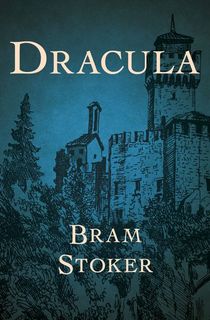In honor of World Sleep Day (which is March 19th ... who knew?) let's spend some time revisiting the tale of the original dark prince of dirt naps, Count Dracula.
The name Dracula has been synonymous with vampires since Irish author Bram Stoker published his most famous book on May 26, 1897. Stoker chewed on the idea for Dracula for some time, and it's said that he received a flash of inspiration for it while sitting on a bench in Whitby, England, looking out at the moody waters in front of him. While sitting on the bench, reading a book on the blood thirsty Romanian ruler Vlad the Impaler that he'd checked out from the library, a story began to play out in his imagination, while the misty English waters rolled before his eyes. There's now a plaque in that very spot that Stoker fans can visit and the inscription reads:
“The view from this spot inspired Bram Stoker (1847-1912) to use Whitby as the setting of part of his world-famous novel DRACULA. This seat was erected by Scarborough Borough Council and the Dracula Society to mark the 68th Anniversary of Stoker’s death - April 20th 1980”
Related: This Creepy Romanian Castle May Have Once Held Vlad the Impaler (a.k.a. Dracula) Prisoner
For fans of horror, vampire lore, present and former goth culture, or all of the above, it would not be hyperbole to say that Bram Stoker's Dracula is the apex of our whole deal here. Consider this your bible, freaky friends, and if for some reason you haven't read it yet, you need to fix that immediately or you will no longer be allowed to shop at Hot Topic, wear black t-shirts and jeans seven days a week, or claim that The Cure is your favorite band. We don't make the rules here, we just enforce them.

Dracula
A junior solicitor travels to Transylvania to meet with an important client, the mysterious Count Dracula. Ignoring the dire warnings of local townsfolk, he allows himself to be seduced by the count’s courtly manners and erudite charm. Too late, the solicitor realizes that he is a prisoner of Castle Dracula, his guards a trio of voluptuous young women with sharp white teeth and a taste for blood.
Soon thereafter, the solicitor’s fiancée, Mina, visits a friend on the English coast. The town is full of speculation over a Russian ship run aground nearby, its crew missing, the dead body of its captain, crucifix in hand, lashed to the wheel. A giant dog was seen leaping from the deck before disappearing into the countryside. The ship’s cargo: fifty boxes of Transylvanian dirt. As the beautiful Mina will soon learn, Count Dracula has arrived.
At once a Gothic reflection of the Victorian era and a timeless tale of sinister lust, Bram Stoker’s Dracula has inspired countless adaptations—none with the same power to quicken the pulse as the original.
Over the past ten years or so, you may have noticed an uptick in reboots, most of them ranging from unnecessary to eye-roll inducing. For the most part, reboots point to the creative well running dry, but in a few cases, constant rebooting of core material can be seen as a testament to its brilliance in that, even after a hundred plus years, nothing has come close to besting it. That's the case with Stoker's original telling of the story of Dracula. Since 1897 the story that came to his mind, sitting on that bench in England, has yielded fruit in the form of dozens of movies, TV shows, graphic novels, festivals, themed awards, and on and on. When Vlad the Impaler was severing heads, shoving them onto sticks, and decorating his yard with them in 1448 he never would have dreamt that his name would have a life so much longer than his actual life carried out. Such is the way with vamps, I guess.
As we settle into spring, before the blaring heat of summer is upon us, let's retreat to a nice, dark, cool corner and read (or re-read) Dracula. The sun can wait. It always comes back eventually. Some would even say unfortunately.
